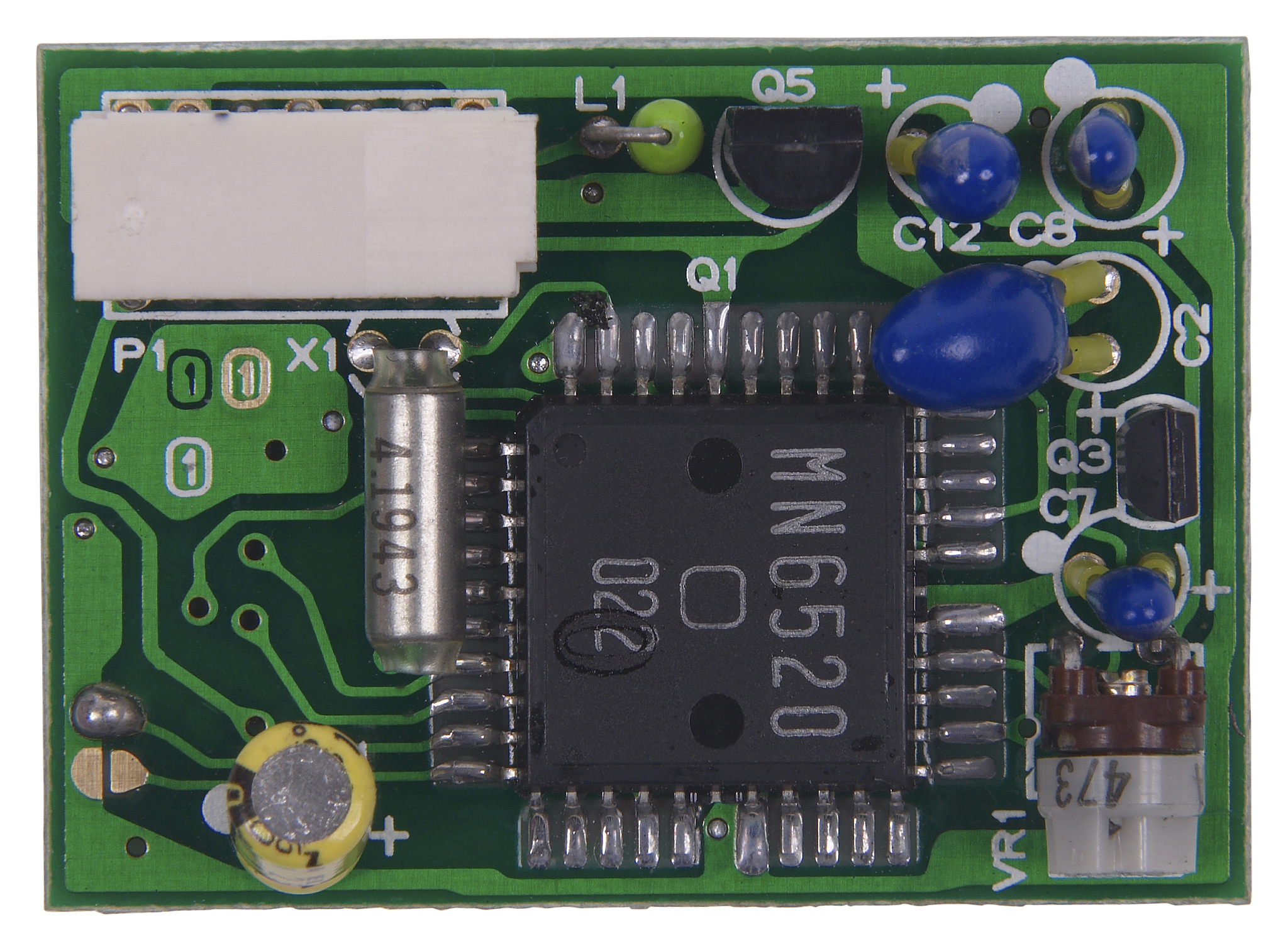五路四驱循迹小车代码 STM32F103C8T6 L298N
以下是一个基本的五路四驱循迹小车的代码示例,使用STM32F103C8T6微控制器和L298N电机驱动模块。
#include "stm32f10x.h"
// 定义电机控制引脚
#define MOTOR1_PIN1 GPIO_Pin_0
#define MOTOR1_PIN2 GPIO_Pin_1
#define MOTOR2_PIN1 GPIO_Pin_2
#define MOTOR2_PIN2 GPIO_Pin_3
#define MOTOR3_PIN1 GPIO_Pin_4
#define MOTOR3_PIN2 GPIO_Pin_5
#define MOTOR4_PIN1 GPIO_Pin_6
#define MOTOR4_PIN2 GPIO_Pin_7
#define MOTOR5_PIN1 GPIO_Pin_8
#define MOTOR5_PIN2 GPIO_Pin_9
// 定义循迹传感器引脚
#define SENSOR1_PIN GPIO_Pin_10
#define SENSOR2_PIN GPIO_Pin_11
#define SENSOR3_PIN GPIO_Pin_12
#define SENSOR4_PIN GPIO_Pin_13
#define SENSOR5_PIN GPIO_Pin_14
// 初始化GPIO引脚
void GPIO_Configuration(void) {
GPIO_InitTypeDef GPIO_InitStructure;
// 使能GPIO时钟
RCC_APB2PeriphClockCmd(RCC_APB2Periph_GPIOA | RCC_APB2Periph_GPIOB | RCC_APB2Periph_GPIOC, ENABLE);
// 配置电机控制引脚
GPIO_InitStructure.GPIO_Mode = GPIO_Mode_Out_PP;
GPIO_InitStructure.GPIO_Speed = GPIO_Speed_50MHz;
GPIO_InitStructure.GPIO_Pin = MOTOR1_PIN1 | MOTOR1_PIN2;
GPIO_Init(GPIOA, &GPIO_InitStructure);
GPIO_InitStructure.GPIO_Pin = MOTOR2_PIN1 | MOTOR2_PIN2;
GPIO_Init(GPIOB, &GPIO_InitStructure);
GPIO_InitStructure.GPIO_Pin = MOTOR3_PIN1 | MOTOR3_PIN2 | MOTOR4_PIN1 | MOTOR4_PIN2 | MOTOR5_PIN1 | MOTOR5_PIN2;
GPIO_Init(GPIOC, &GPIO_InitStructure);
// 配置循迹传感器引脚
GPIO_InitStructure.GPIO_Mode = GPIO_Mode_IPU;
GPIO_InitStructure.GPIO_Pin = SENSOR1_PIN | SENSOR2_PIN | SENSOR3_PIN | SENSOR4_PIN | SENSOR5_PIN;
GPIO_Init(GPIOC, &GPIO_InitStructure);
}
// 控制电机运动
void MotorControl(uint8_t motor, uint8_t direction) {
switch (motor) {
case 1:
if (direction == 1) {
GPIO_SetBits(GPIOA, MOTOR1_PIN1);
GPIO_ResetBits(GPIOA, MOTOR1_PIN2);
} else {
GPIO_ResetBits(GPIOA, MOTOR1_PIN1);
GPIO_SetBits(GPIOA, MOTOR1_PIN2);
}
break;
case 2:
// 类似地设置其他电机引脚
break;
case 3:
// 类似地设置其他电机引脚
break;
case 4:
// 类似地设置其他电机引脚
break;
case 5:
// 类似地设置其他电机引脚
break;
}
}
// 主函数
int main(void) {
// 初始化GPIO引脚
GPIO_Configuration();
while (1) {
// 读取循迹传感器状态
uint8_t sensor1 = GPIO_ReadInputDataBit(GPIOC, SENSOR1_PIN);
uint8_t sensor2 = GPIO_ReadInputDataBit(GPIOC, SENSOR2_PIN);
uint8_t sensor3 = GPIO_ReadInputDataBit(GPIOC, SENSOR3_PIN);
uint8_t sensor4 = GPIO_ReadInputDataBit(GPIOC, SENSOR4_PIN);
uint8_t sensor5 = GPIO_ReadInputDataBit(GPIOC, SENSOR5_PIN);
// 根据传感器状态控制电机运动
if (sensor1 == 0 && sensor2 == 0 && sensor3 == 1 && sensor4 == 0 && sensor5 == 0) {
MotorControl(1, 1); // 向前
MotorControl(2, 1);
MotorControl(3, 1);
MotorControl(4, 1);
MotorControl(5, 1);
} else if (sensor1 == 0 && sensor2 == 0 && sensor3 == 0 && sensor4 == 0 && sensor5 == 1) {
MotorControl(1, 0); // 向右
MotorControl(2, 0);
MotorControl(3, 1);
MotorControl(4, 0);
MotorControl(5, 0);
} else if (sensor1 == 1 && sensor2 == 0 && sensor3 == 0 && sensor4 == 0 && sensor5 == 0) {
MotorControl(1, 0); // 向右
MotorControl(2, 0);
MotorControl(3, 0);
MotorControl(4, 0);
MotorControl(5, 1);
} else if (sensor1 == 0 && sensor2 == 0 && sensor3 == 0 && sensor4 == 1 && sensor5 == 0) {
MotorControl(1, 0); // 向右
MotorControl(2, 0);
MotorControl(3, 0);
MotorControl(4, 1);
MotorControl(5, 0);
} else if (sensor1 == 0 && sensor2 == 1 && sensor3 == 0 && sensor4 == 0 && sensor5 == 0) {
MotorControl(1, 1); // 向左
MotorControl(2, 1);
MotorControl(3, 0);
MotorControl(4, 1);
MotorControl(5, 1);
} else {
// 其他情况停止电机运动
MotorControl(1, 0);
MotorControl(2, 0);
MotorControl(3, 0);
MotorControl(4, 0);
MotorControl(5, 0);
}
}
}
请注意,此代码示例仅为参考,具体的电机引脚和传感器引脚配置可能需要根据实际情况进行调整。此外,还需要根据实际的电机驱动模块和传感器模块进行适当的修改。

原文地址: http://www.cveoy.top/t/topic/imsL 著作权归作者所有。请勿转载和采集!